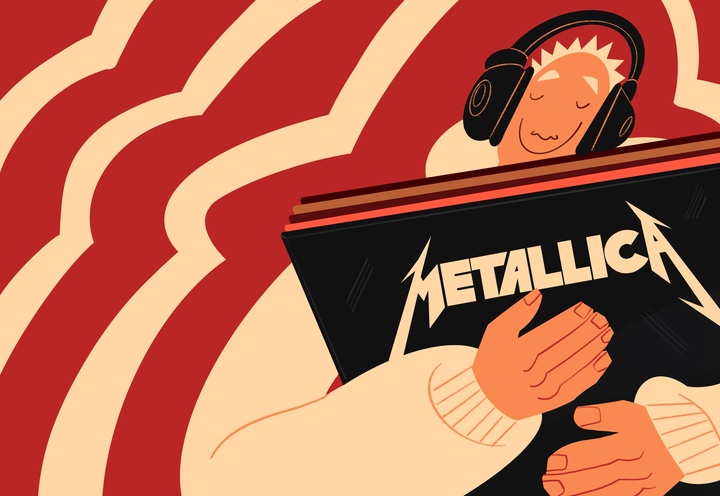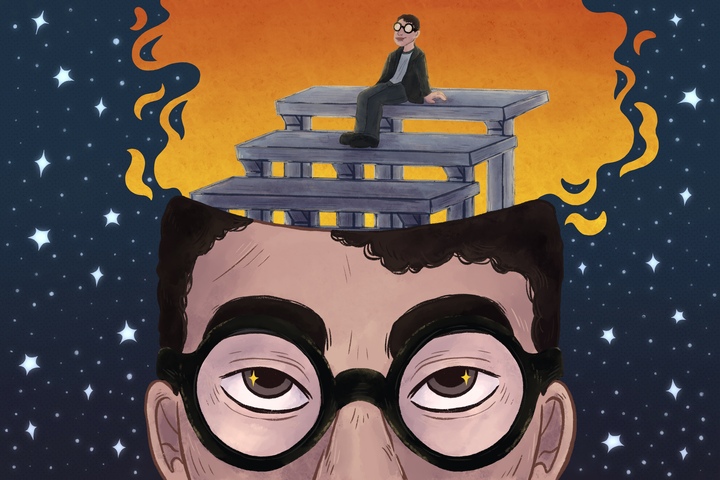Often times, we listen to certain songs because we like the way the beat makes us feel or how catchy the lyrics are, but few people stop to think about how the overall song can have an effect on your mental health. Music is a universal experience that has the power to move the spirit of so many people. Musicians all over the world feel inspired to create music that people can relate to and empathize with. Whether it’s a song about heartbreak, being in love, or about achieving your goals, there is always a song that can shift your mood or your mindset. For example, have you ever received a song from someone you have romantic feelings for and it described everything that their heart feels for you? This immediately causes your dopamine levels to skyrocket. The song is now a linked to a strong emotional tie because of the intention that was set from the other person. This can also happen when you listen to a sad song when you’re feeling down, it can lead you to feel those emotions immensely.
Music has an important impact on our emotions because it opens a region that is connected to our memories and emotions. On the Brain Health Survey, it was quoted that “a nationwide representative survey that interviewed over 3,000 people found that music had a small but noticeable impact on easing their depression and anxiety”. Music has a way of speaking to the parts of the soul that some of the people in our lives cannot, because it is a universal language. Music has the power to help ease our minds so that we have a good night’s rest, it can be used as a motivator in the gym, it can also be used as a tool of inspiration for a new art piece, and it can be used as a message to a loved one if it is intentionally chosen.
Another aspect of music that should be taken into consideration is the frequency of the music. Frequency is defined as the rate at which a vibration occurs that constitutes a wave, either in a material or in an electromagnetic field, usually measured per second. In the spiritual community, different frequencies can help an individual to reach a spiritual awakening. The “7 Spiritual Frequencies” article defined this music as meditative frequencies. These are sounds that can help uplift your mood through your sense of hearing. Researchers claim that the 528hz level has the potential to offer the listener a deep transformative experience by bringing forth emotional and physical healing, anxiety reduction and a sense of rebirth. This is linked back to an 11th century Italian Monk, Guido of Arezzo, who invented a way to explain pitch that evolved into a note sequence called the solfeggio scale. It has been said that this scale was used in a sacred manor along with soulful Georgian chants that were believed to spread spiritual blessings. As time went on, in 1988, biochemist Glen Rein transformed the scale Georgian chants into audio waves. These chants increased light absorption which is why it is believed that these ancient sound frequencies contain healing properties.
There are many different frequencies that can be found on the internet to choose from that can be used as an introduction to mental, spiritual, and emotional healing through sound. Even if you may not resonate with the ancient essence of the music, there are some artist in our generation that use healing frequencies in the music that they make like Jhene Aiko. Aiko is known for embedding healing frequencies within her music which is why she is so well known today for her transcending music.
Music is a tool that can help heal the masses. Next time you decide to take some time to vibe out to some music, take a moment and try to be intentional with assessing how you want to feel in that moment. Your options are limitless and you deserve to have a loving and transformative experience through the power of music.


